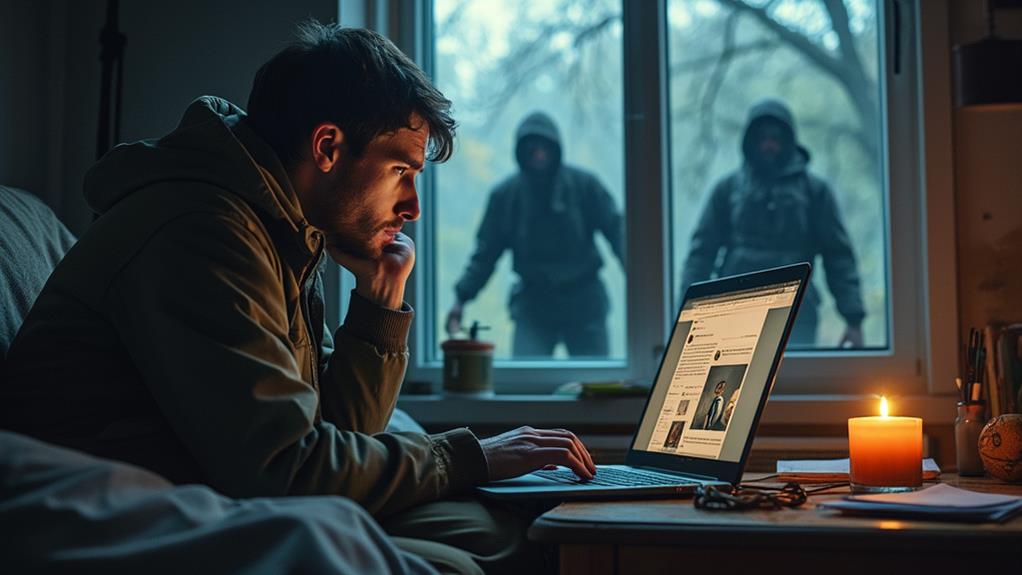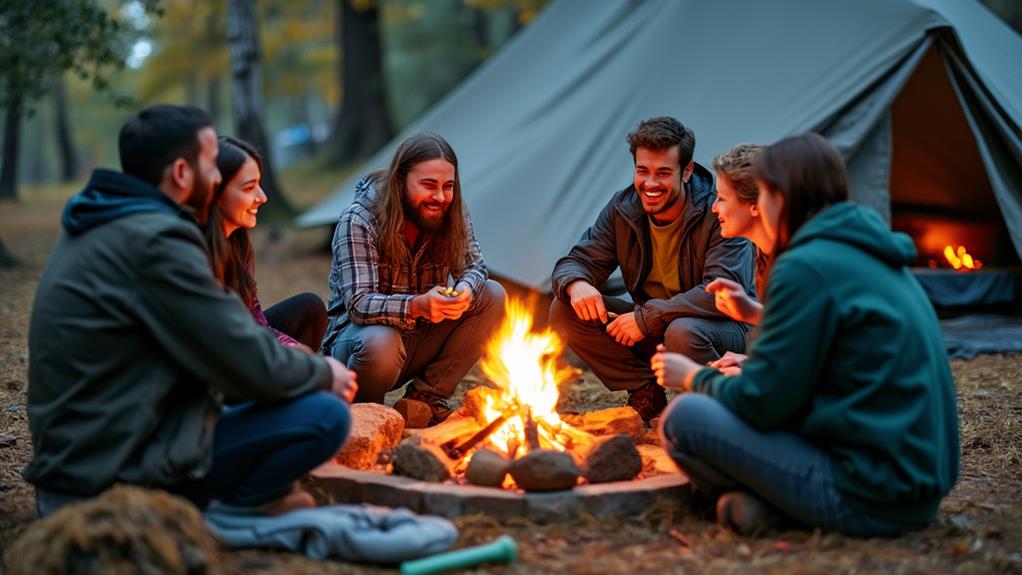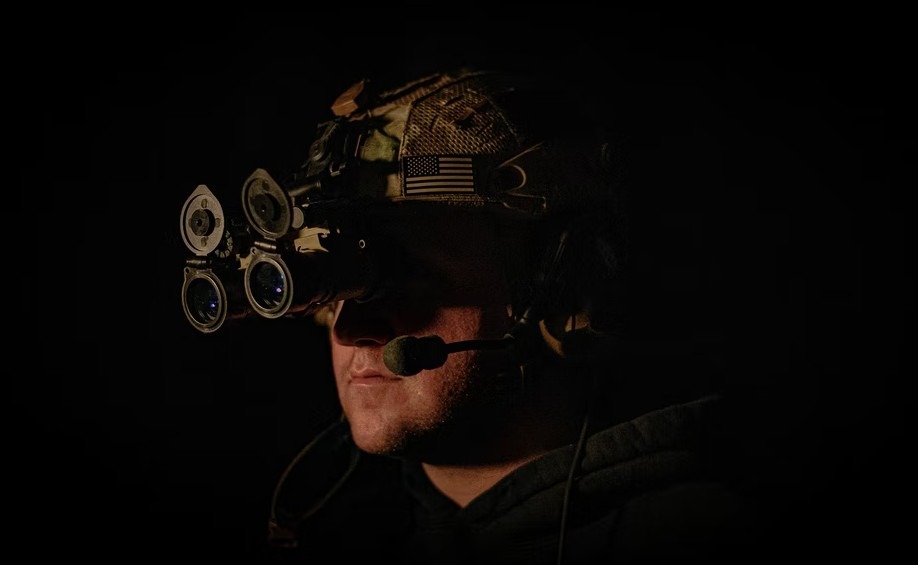What Is the First Rule of Prepping?

When you start prepping, the primary rule is to understand your unique needs and risks based on your location and personal situation. Conduct a detailed risk analysis to identify potential threats like natural disasters or civil unrest. Tailor your preparations to these specific dangers and familiarize yourself with local resources to establish a solid foundation for any emergency. Additionally, consider the importance of discretion and the risks of oversharing. Community dynamics and psychological aspects also play crucial roles in your prepping strategy.
Understand Your Needs and Risks

The initial and most vital step in prepping is to understand your specific needs and risks. Start by assessing your geographical location to identify potential emergencies, such as natural disasters, civil unrest, or economic instability. This understanding allows you to tailor your preparations to your unique situation. Each individual or family has distinct circumstances, so consider factors like health conditions, the number of dependents, and available resources. This evaluation is crucial for creating an effective prepping strategy.
Conduct a thorough risk analysis to prioritize threats that require immediate attention. This ensures your efforts focus on the most likely and impactful scenarios. Familiarize yourself with local resources, including emergency services, community shelters, and support networks. Knowing these resources can significantly enhance your disaster response and recovery planning.
Regularly review and update your understanding of risks and needs, as circumstances and potential threats can evolve over time. Staying informed and adaptable guarantees that your preparations remain relevant and effective. Ultimately, a clear understanding of your needs and risks forms the foundation of a successful prepping strategy.
Importance of Discretion
Understanding your needs and risks is just the beginning; the next crucial aspect is the importance of discretion. When you're preparing for emergencies, keeping your plans and resources confidential is essential for maintaining safety. Discretion helps protect sensitive information and reduces the risk of unwanted attention from outsiders. By not broadcasting your activities, you lower the chances of theft or sabotage, ensuring your emergency kit and supplies remain secure when a crisis occurs.
Over-sharing about your preparations can jeopardize your personal safety, making you and your family vulnerable to opportunistic threats. A culture of discretion within prepping communities fosters trust and cohesion, allowing members to share resources and knowledge safely without fear of exposure.
Discretion also preserves the element of surprise, giving you an advantage during emergencies. Your preparedness efforts will be more effective if others are unaware of your capabilities and stockpiles.
| Situation | Risk |
|---|---|
| Broadcasting your plans | Unwanted attention |
| Sharing resources openly | Theft or sabotage |
| Talking about your preparations | Compromised safety |
| Lack of community discretion | Distrust within the group |
| Revealing supplies | Loss of surprise advantage |
Risks of Oversharing

Oversharing your prepping plans can attract opportunistic individuals who might exploit your resources during a crisis. Publicly discussing your strategies compromises your personal safety and makes you a target for theft or vandalism. Additionally, sharing too much can erode trust within your community, leading to conflicts and a loss of support.
Attracting Unwanted Attention
Sharing too much about your prepping supplies and strategies can attract opportunistic individuals looking to exploit your efforts during a crisis. Disclosing specific details risks drawing unwanted attention that could endanger you and your family. Opportunists are always on the lookout for well-prepared individuals to target, especially during emergencies when resources are scarce and desperation runs high.
To protect yourself, it's crucial to plan ahead and practice discretion. Public knowledge of your prepping efforts can lead to targeted attacks, compromising your safety. The element of surprise is a valuable asset in a crisis scenario, and oversharing can diminish this advantage. Keep your plans and supplies under wraps to maintain control over your situation.
Furthermore, leaking information about your preparedness can erode trust within the prepping community. It can spark conflicts and suspicion among members who value discretion and security. Additionally, a high profile in prepping circles can attract unwanted scrutiny from authorities or others who might misinterpret your intentions, leading to unnecessary interventions.
Compromising Personal Safety
Oversharing details about your prepping supplies and strategies puts you at significant risk. Making your preparations public knowledge invites opportunistic individuals to target you during a crisis. They might see your well-stocked supplies as an easy target, compromising your personal safety and peace of mind. Remember, not everyone shares your values or goals. Some may misinterpret your actions as extreme or paranoid, leading to unnecessary social stigma and potential conflicts with friends and family.
Visible prepping activities attract unwanted attention, increasing the risk of theft or vandalism. This jeopardizes the safety you're working to ensure. The visibility of your preparations might also lead to increased scrutiny from authorities or targeted attacks during emergencies. Sharing too much information eliminates the element of surprise, leaving you more vulnerable.
To maintain your safety and the integrity of your efforts, keep the details of your prepping activities private. The less public knowledge about your preparations, the better your chances of staying safe and secure when it truly matters. Your peace of mind hinges on discretion and careful sharing.
Undermining Community Trust
Revealing too much about your prepping activities can significantly erode community trust. Oversharing details about your stockpile or strategies invites unwanted scrutiny and attention from outsiders, jeopardizing the security of your resources and plans. Opportunistic individuals may target your preparedness, increasing the risk of theft and vandalism during crises.
Additionally, divulging specific prepping plans diminishes the element of surprise, making you more vulnerable in emergencies. In a community setting, sharing your prepping philosophies can create conflicts with those who hold different views, further eroding mutual trust and cohesion. This discord can be detrimental to the community's well-being, especially when unity is vital.
The fear of judgment or ridicule from peers can also discourage open communication, isolating you from valuable support networks. This isolation weakens the community's overall resilience and trust. By keeping your prepping activities discreet, you safeguard your resources and fortify community trust, ensuring better cooperation and support in times of need.
Community Dynamics
Trust is the cornerstone of any successful prepping community, making it essential for members to respect each other's privacy and boundaries. Effective communication is key to building this trust. Open discussions can sometimes lead to disagreements, so it's important to establish common ground and shared values. When trust is strong, it facilitates resource and knowledge sharing, enhancing everyone's preparedness.
Discretion is crucial in maintaining a safe and secure environment. Oversharing can attract unwanted attention, putting the community at risk. By managing communication carefully, potential misunderstandings and conflicts can be avoided, ensuring a cohesive group dynamic.
| Key Factor | Importance |
|---|---|
| Trust | Foundation for community strength |
| Communication | Prevents conflicts and confusion |
| Discretion | Ensures safety and security |
Building a supportive network improves individual preparedness and resilience. This requires a delicate balance of openness and caution. Trust allows effective collaboration during emergencies, enabling resource and strategy sharing without fear of exploitation.
Psychological Aspects

Navigating the psychological landscape of prepping can be as challenging as the physical preparations themselves. These psychological aspects often arise from a fear of societal collapse, prompting individuals to prepare in silence and solitude. This fear can lead to anxiety about potential disasters, and if not balanced with rational planning, it can escalate into paranoia.
Emotional burdens are common in prepping, but discreet discussions with trusted individuals can provide relief and foster a sense of community. Sharing your concerns and plans with a select few can alleviate some stress without compromising your security.
Recognizing that prepping is a personal journey can help mitigate feelings of isolation. Accept your choices without seeking external validation, allowing you to focus on what truly matters: your readiness and peace of mind.
Building confidence in your self-reliance through careful planning and preparation is essential. Whether it's food storage or other necessities, knowing you're prepared can improve your mental well-being. By reducing the stress associated with uncertainty, you can maintain a more balanced and rational approach to prepping.
Effective Communication Strategies
Effective communication strategies are essential for balancing the dissemination of valuable prepping knowledge with the need to maintain the security of your plans. When discussing prepping with family and friends, exercise caution. Using coded language in public settings helps maintain discretion and avoid drawing unwanted attention, allowing you to discuss preparations without divulging too much information.
Participate in private forums or closed groups where you can safely exchange ideas and experiences with trusted individuals. This creates a secure environment for discussing general preparedness topics, rather than specific plans or resources, thereby minimizing the risks of theft or sabotage.
Focus on encouraging discussions about general prepping principles rather than specific personal plans. This fosters a culture of confidentiality within your prepping community, helping to maintain trust and respect for privacy. When everyone understands the importance of keeping specific details private, it enhances relationships and ensures better collaboration.
Building a Supportive Network

Maintaining effective communication is vital, and building a supportive network of like-minded individuals can significantly enhance your preparedness efforts. Connecting with other preppers fosters a sense of community and shared knowledge, improving individual and collective readiness. Online forums and communities offer safe spaces to discuss strategies and share resources discreetly.
Local meetups are also valuable. They enable you to strengthen ties with others while maintaining discretion about your specific plans and supplies. Confidentiality agreements within these groups build trust, allowing for more open sharing of valuable resources and knowledge.
Networking with other preppers facilitates collaboration on larger projects, such as community gardens or resource-sharing initiatives. These collective efforts enhance resilience and ensure that everyone benefits from shared resources and skills.
Here's a quick breakdown:
| Benefit | Description | Example |
|---|---|---|
| Community | Fosters a sense of belonging and support | Local meetups |
| Resources | Access to shared knowledge and supplies | Online forums |
| Network | Build relationships with like-minded individuals | Confidentiality agreements |
| Collaboration | Work together on larger projects | Community gardens |
| Resilience | Boosts general preparedness | Resource-sharing initiatives |




